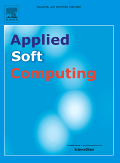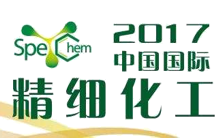
- Written by: Thomas Weise
On Wednesday, October 25, 2017 from 09:30 to 10:20, I presented my research talk "Automating Scientific Research in Optimization" in Anhui University (AHU) [安徽大学], Conference Hall on the First Floor below of the Xingzhi Building [安徽大学磬苑校区行知楼负一楼报告厅] at the Symposium on Evolutionary Computation [进化计算领域专家系列学术报告会] under the organization of Professors Xingyi Zhang (Anhui University) and Bin Li (USTC) for the IEEE CIS Hefei Chapter. The talk followed the presentation "Approximation-Guided Many-Objective Optimisation and the Travelling Thief Problem" by our guest researcher Dr. Markus Wagner, Senior Lecturer from the Optimisation and Logistics Group of the School of Computer Science of The University of Adelaide, Australia and, in turn, was followed by the talk "Species-based PSO for Continuous Dynamic Constrained Optimization" by Associate Prof. Dr. Wenjian Luo (USTC). All talks are open for any interested audience. [poster, slides]

- Written by: Thomas Weise
Senior Lecturer Dr. Markus Wagner from the Optimisation and Logistics Group of the School of Computer Science of The University of Adelaide, SA, Australia presented the research talk "Approximation-Guided Many-Objective Optimisation and the Travelling Thief Problem" on Wednesday, October 25, 2017 from 08:40 to 09:30 in Anhui University (AHU) [安徽大学], Conference Hall on the First Floor below of the Xingzhi Building [安徽大学磬苑校区行知楼负一楼报告厅] at the Symposium on Evolutionary Computation [进化计算领域专家系列学术报告会] under the organization of Professors Xingyi Zhang (Anhui University) and Bin Li (USTC) for the IEEE CIS Hefei Chapter. The talk is followed by the talks "Automating Scientific Research in Optimization" by Prof. Weise and "Species-based PSO for Continuous Dynamic Constrained Optimization" by Associate Prof. Dr. Wenjian Luo (USTC). The audiences of all presented talks were quite big and interesting discussions ensued. [poster, slides]

- Written by: Thomas Weise
Today, I attended the Shanghai Smart Home Technology (SSHT) [上海国际智能家居展览会] and Shanghai Intelligent Building Technology (SIBT) [上海国际智能建筑展览会] exhibitions in Shanghai. SIBT is an event for innovative intelligent building technologies and solutions related to the Internet of Things (IOT), cloud computing, and big data for building energy efficiency, energy management systems, and intelligent housing in general. SSHT, on the other hand, focuses more on home automation, technologies, technical integration, and cross-sector business collaboration in order to make our homes more convenient.
The exhibition was maybe slightly larger than the other fairs that I have visited this year and also had a higher visitor density. Also, almost all presenters at almost all booths there were permanently engaged in discussions with interested audience. It was clearly visible that there currently is a huge marked for smart homes and smart buildings with high consumer interest.
Many different companies presented diverse products. In my perception, the largest share of products were automation tools for end consumers such as automated switches maybe controlled via a mobile phone app, multi-functional sockets and switches with LCD displays, actuators such as automated curtain openers (maybe controlled via an app), intelligent locking and surveillance systems, and integrated home entertainment systems. There were providers of electronic building blocks for IOT applications, integrating, and controlling other systems for developing other applications and there were network infrastructure providers. Fewer, but present, were software vendors for building control and management software as well as home robotics.
I would say that the gravitational center of the exhibits was the convenience of the user. If we leave aside the new entertainment systems, I think most of the exhibitions were on better interfaces: nicer switches and apps with which you can turn on and off basically everything in your home. The fraction of truly intelligent systems, e.g., systems that would try to learn from and predict the user behavior or that would try to predict future events or changing environment conditions and adjust the home or building behavior to them, seemed to be smaller (but then again, I cannot really understand Chinese, so I may have overlooked some interesting exhibits).
Given the huge audience at the fairs and the market they represent, I would say that must be a huge future for intelligent homes and buildings. I saw some product frameworks which aim at the higher-level control over and the management of buildings and components. Given the already existing network infrastructure of the components, especially for large building compounds or office buildings (both of which we have many in China), intelligent technologies for water and energy saving, lighting or elevator control, automated cleaning robots, and maintenance scheduling will surely have a great market. And, of course, optimization, operations research, and machine learning could enable and improve on them.

- Written by: Thomas Weise
at the Tenth International Conference on Advanced Computational Intelligence (ICACI 2018)
March 29-31, 2018 in Xiamen [厦门], Fujian [福建省], China
http://iao.hfuu.edu.cn/bocia18
BOCIA, the International Workshop on Benchmarking of Computational Intelligence Algorithms, a part of the Tenth International Conference on Advanced Computational Intelligence (ICACI 2018), was cordially inviting the submission of original and unpublished research papers. It took place on March 31st, 2018.
Computational Intelligence (CI) is a huge and expanding field which is rapidly gaining importance, attracting more and more interests from both academia and industry. It includes a wide and ever-growing variety of optimization and machine learning algorithms, which, in turn, are applied to an even wider and faster growing range of different problem domains. For all of these domains and application scenarios, we want to pick the best algorithms. Actually, we want to do more, we want to improve upon the best algorithm. This requires a deep understanding of the problem at hand, the performance of the algorithms we have for that problem, the features that make instances of the problem hard for these algorithms, and the parameter settings for which the algorithms perform the best. Such knowledge can only be obtained empirically, by collecting data from experiments, by analyzing this data statistically, and by mining new information from it. Benchmarking is the engine driving research in the fields of optimization and machine learning for decades, while its potential has not been fully explored. Benchmarking the algorithms of Computational Intelligence is an application of Computational Intelligence itself! This workshop wants to bring together experts on benchmarking of optimization and machine learning algorithms. It provides a common forum for them to exchange findings and to explore new paradigms for performance comparison.
Here you can download the BOCIA Workshop Call for Papers (CfP) in PDF format and here as plain text file.
 All accepted papers in this workshop will be included in the Proceedings of the IEEE ICACI 2018 published by IEEE Press and indexed by EI. Authors of selected papers will be invited to submit extended versions of these papers to the Special Issue on Benchmarking of Computational Intelligence Algorithms in the Applied Soft Computing journal by Elsevier B.V., indexed by EI and SCIE. Here you can download the Special Issue Call for Papers (CfP) in PDF format and here as plain text file.
All accepted papers in this workshop will be included in the Proceedings of the IEEE ICACI 2018 published by IEEE Press and indexed by EI. Authors of selected papers will be invited to submit extended versions of these papers to the Special Issue on Benchmarking of Computational Intelligence Algorithms in the Applied Soft Computing journal by Elsevier B.V., indexed by EI and SCIE. Here you can download the Special Issue Call for Papers (CfP) in PDF format and here as plain text file.
Read more: International Workshop on Benchmarking of Computational Intelligence Algorithms (BOCIA)

- Written by: Thomas Weise
Today, I attended the China International Chemical Industry Fair (ICIF China) [中国国际化工展览会] and SpeChem [中国国际精细化工及定制化学品展览会] exhibitions in Shanghai, i.e., trade shows for the chemistry industry. ICIF is a general fair for all types of chemicals and chemistry-equipment, ranging from petroleum to fertilizer and from pumps and valves to packaging and logistics. SpeChem is focused on the special chemicals used in, e.g., the food and beverage, pharmaceutical, agricultural, electronic, water treatment, oilfield, paper, and textile industries. After already attending several logistics-related events this year, such as Intermodal and LogiMAT, I wanted to attend this fair in order to broaden my focus and to see whether IT and operations research have become central products in the chemistry industry.
The exhibition was quite large and a wide variety of products were presented. Manufacturers of organic and inorganic chemicals promoted their products, but also machinery, be it for cleaning water, automatic packaging, or producing chemicals were displayed. Hoses, valves, vessels, canisters and other utilities could be found. As a side node, I was positively surprised to find quite a lot of Anhui-based companies at the exhibition. Still, most interesting for me were producers of automation and control equipment as well as logistics providers. I even had the chance to discuss with a few of them.
The manufacturers of automation equipment for chemistry production currently seem to mainly focus on traditional features, such as fixed control procedures and networking of components, which, well, is their basic business. However, some of them seriously consider adding more intelligence to their products and production processes, be it by enhancing existing products with networked sensors, making their own production "smart," or by contemplating adding intelligent control and planning capabilities to their products. The logistics providers in the chemistry sector will need to rely on manual negotiations in the foreseeable future due to the volatility of the market and ever-changing regulations. Yet, providers for chemical freight tracking software may begin to utilize Big Data approaches to mine and provide useful information for their clients. In summary, at least from the few discussions I had, I think the chemistry industry is not yet widely utilizing the available capabilities of IT and computational intelligence, although several of my interlocutors think that this will take place in the future, will be a necessary development, and/or are seriously planning to move into this direction.
I believe that the chemistry industry could largely profit from a movement similar to Industry 4.0 (may I dare to call it Chemistry 4.0?). Often, they deal with automated processes run by huge machinery. Questions such as the automated configuration of their process parameters and the best scheduling of production tasks and maintenance works arise quite naturally. Also, chemical manufacturers often do not produce based on customer orders but perform stockpiling, which asks for intelligent predictions of future orders. All of the above could be single optimization problems or even combined into a complex integrated optimization task, maybe even involving optimization along the whole supply chain. Of course, to get there means to first invest money into the development of optimization tools, without clearly knowing how much resources or money can be saved or how much the productivity can be increased beforehand. This may be an understandable and large hurdle, nevertheless, I believe that there is a huge potential in this field.
- Research Talk "Automating Scientific Research in Optimization" by Prof. Thomas Weise at the Ludwig-Maximilians-Universität Munich in Munich (München), Germany
- Research Talk "Automating Scientific Research in Optimization" by Prof. Thomas Weise at the Johannes Gutenberg University Mainz in Mainz, Germany
- Research Talk "Automating Scientific Research in Optimization" by Prof. Thomas Weise at the University of Cologne in Köln (Cologne), Germany
- Research Talk "Automating Scientific Research in Optimization" by Prof. Thomas Weise at the University of Leipzig in Leipzig, Germany
